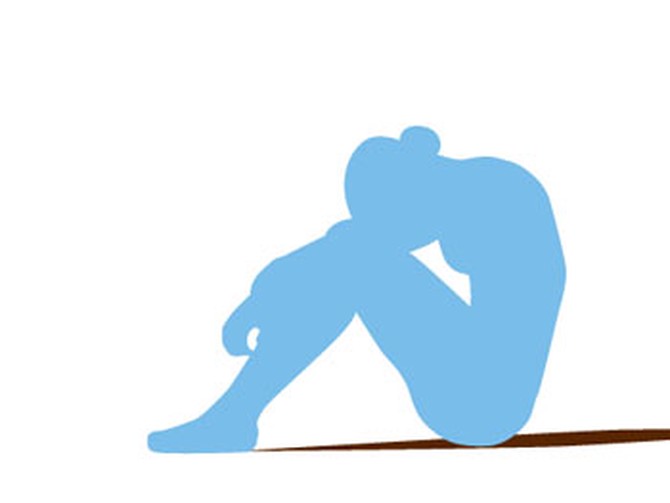6 Mantras to Help You Bounce Back During Hard Times
When things get tough, you have a choice: be weak, or be strong. Get 10 tips on how to make the most of any hard time—with a little help from Karen Salmansohn's The Bounce Back Book.
By Karen Salmansohn
Tip 4: Feeling Means You're Dealing Means You're Healing
I was experiencing many of the same emotions after my sexual assault that Elisabeth Kübler-Ross describes in her five stages of accepting the death of a loved one. The only difference is that, with death, you at least get the perk of being brought some yummy casseroles.
Kübler-Ross outlines the five stages of grief as follows:
Stage #1: Denial and isolation:
"This is not happening to me."
Stage #2: Anger:
"How dare this happen to me."
Stage #3: Bargaining:
"Just let me get X and I won't care about Y," or "If this doesn't happen, I promise to..."
Stage #4: Depression:
"I can't bear to face going through this."
Stage #5: Acceptance:
"I'm ready; I don't want to struggle anymore."
If you've been through a personal tragedy, chances are that you too don't want to accept it and let in all the painful emotions—at least for a while.
Psychologist Sharon Wolf believes there is a "core pain" you must be ready to feel during really bad times to fully recover: "If you want to heal rightly from a crisis, be ready to tolerate more pain than you thought you could ever feel," warns Wolf.
Thankfully, Wolf promises if you learn to sit with, feel, and tolerate this core pain, it will get smaller and smaller, until it ultimately disappears.
Bounce Back Assignment: If you are avoiding your pain and grief as I tried to do, remind yourself:
Kübler-Ross outlines the five stages of grief as follows:
Stage #1: Denial and isolation:
"This is not happening to me."
Stage #2: Anger:
"How dare this happen to me."
Stage #3: Bargaining:
"Just let me get X and I won't care about Y," or "If this doesn't happen, I promise to..."
Stage #4: Depression:
"I can't bear to face going through this."
Stage #5: Acceptance:
"I'm ready; I don't want to struggle anymore."
If you've been through a personal tragedy, chances are that you too don't want to accept it and let in all the painful emotions—at least for a while.
Psychologist Sharon Wolf believes there is a "core pain" you must be ready to feel during really bad times to fully recover: "If you want to heal rightly from a crisis, be ready to tolerate more pain than you thought you could ever feel," warns Wolf.
Thankfully, Wolf promises if you learn to sit with, feel, and tolerate this core pain, it will get smaller and smaller, until it ultimately disappears.
Bounce Back Assignment: If you are avoiding your pain and grief as I tried to do, remind yourself:
- Fear of pain is often worse than the pain itself. When the pain starts to seep through your consciousness, let it come. Don't fight those tears. If possible, give yourself specific times to grieve. (By the way, as an unexpected perk, crying is better than getting a facial in removing toxins for clear, growing skin.)
- Because feeling your core pain is scary, you might be tempted to seek comfort by numbing yourself—with alcohol, sleeping pills, or other addictive substances. Be strong. Resist and persist in allowing your true pain to surface.
- You are an unfinished self in process. Like to many of life's challenges, experiencing and overcoming pain can reveal emotional depths and perspectives you didn't know you were capable of.
- Keep a journal. Track your healing process through the five stages (you may skip some stages and also regress or cycle back), but a journal will show you that progress is being made. And remember, after you pass through stage 4, that final stage of Acceptance is right around the corner. Whew!
Published 12/24/2009


